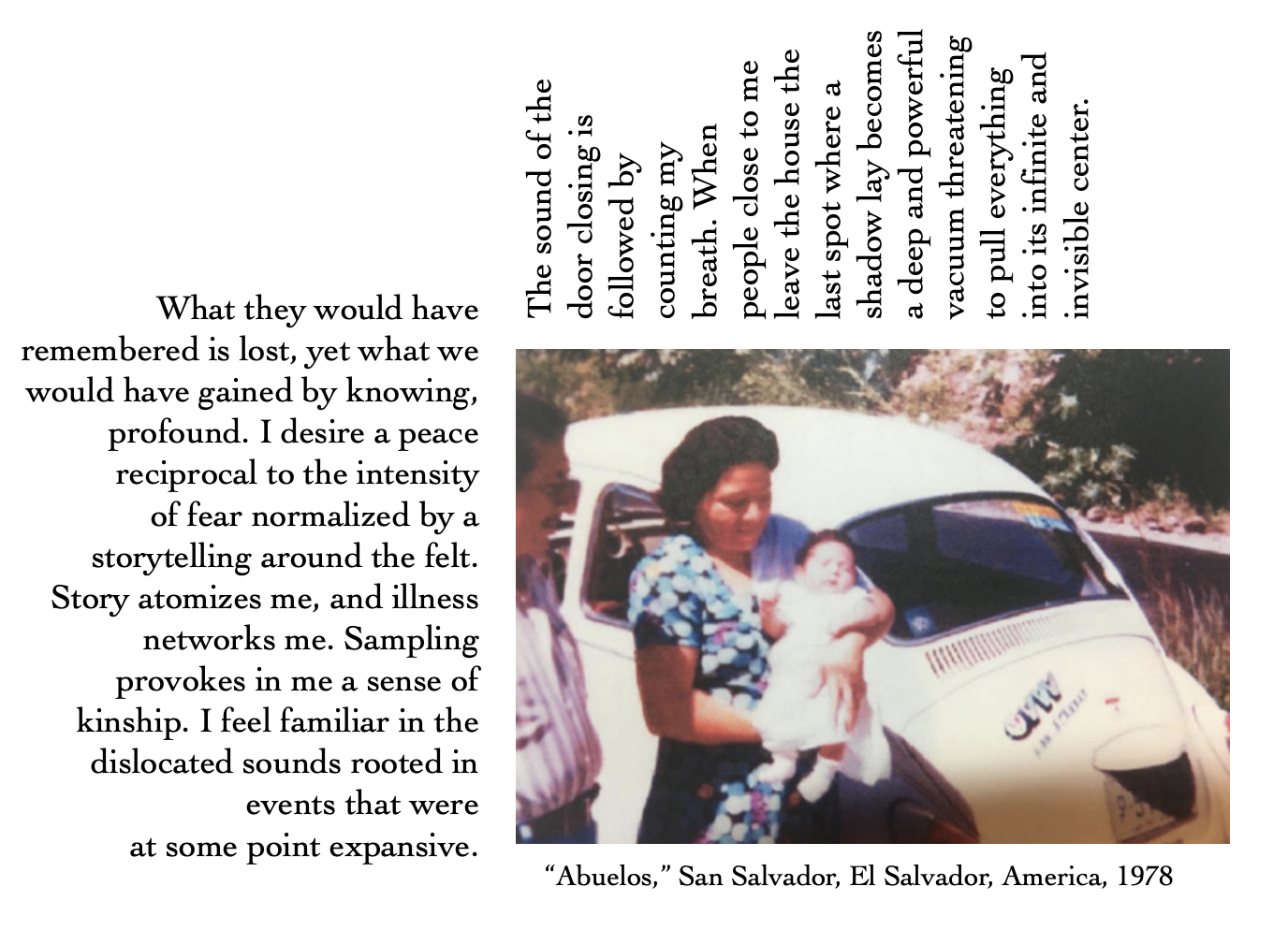en el norte / soy del sur
As part of my experiences with therapy I began retracing transgenerational trauma in my family. Specifically, I started writing about my grandparents’ death prior to my family leaving El Salvador in 1979-1980. They were run over by a car with American embassy plates. Engaging with postmemory work, family systems theory, and somatic abolitionism helped me understand how trauma is imparted onto children prior to consciousness, especially in diaspora communities effected by war. Those traumas exist in a chain of affinities which the experience of national violence obscures with abstract principles of right/wrong, and that veiling imbeds the felt threat of war into the body, creating subsequent traumas that can be traced in the identities and somatic retention each member of a family expresses.
Theoretically, a family system is a lot to process on its own. In diaspora folks, however, there is the added context of negotiating systems of trauma while also contending with what Resmaa Menakem calls “white-body supremacy,” and the pressures of assimilation, self-hatred, and erasure. This is the atmosphere within which the writing around en el norte / soy del sur takes shape, evoking a care towards the speaker’s inner child, their parents, and their grandparents. The polarities the book embraces are two exceptionalisms: “healing” and “supremacy.” Between them each section is what I call a sonnet-essay, sonnets braided together by interrelated voltas.
My work has often been skeptical of reading as consumption, particularly of the way a universal reader might easily consume a poetics that comes from the South, a poetics of somatic disclosure, of openness, so to speak. Or a “brown” poetics to use José Esteban Muñoz’s term. A poetics of identity, to be direct. This includes white poets investigating their own somatic retention of historical trauma in an attempt at collective well being. There’s a lot of labor in processing the speech act for folks that engage with process in an embodied sense, and I’ve tried to demonstrate that labor in previous work. In this book, I’m making an attempt at storytelling as an attempt at legibility, while forebearing any sense of being “healed” by or from legibility.
forthcoming Omnidawn Publishing





